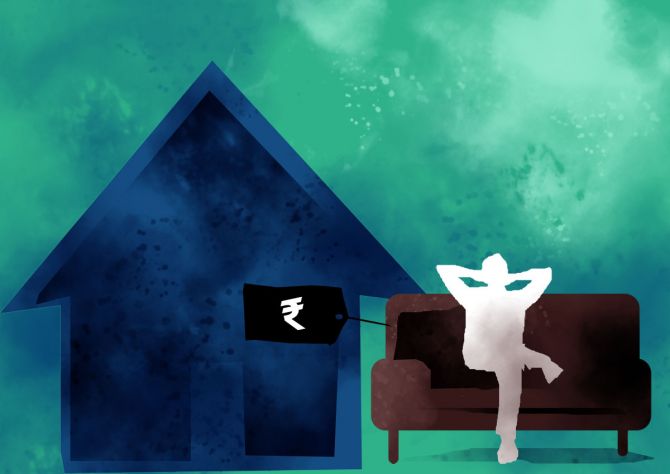'We started affordable housing loans that has good traction and the books have grown to Rs 750 crore as of the end of last quarter.'

PNB Housing Finance, the fourth-largest housing finance company in India, is changing its business strategy by focusing mainly on the retail business, and, within retail, the salaried class will be the focus.
In an interview with Manojit Saha for The Business Standard Banking Show, Girish Kousgi, managing director and chief executive officer, says the plan is to grow the loan books by 17 per cent and disbursement by 22-23 per cent this financial year.
PNB Housing has reduced its corporate loans sharply, which is perhaps a conscious strategy. Do you think the reduction in the corporate books is over and they will start growing again?
It was a conscious call to de-grow the corporate books because we saw stress ... we saw non-performing assets (NPAs) close to about 35 per cent.
At one point the books were Rs 18,000 crore. So we thought of resolving the NPAs first, bring them down to a comfortable level, de-grow the books, and then re-start.
Now the books are down to Rs 2,400 crore. Corporate gross NPAs are also down to less than 3 per cent. So it is now two-three quarters away from a re-start.
We will do the corporate business only to grow on the retail front.
On the corporate side, the focus will be on construction finance, select builders, select projects, and select locations.
That will be the strategy. In the overall portfolio, corporate will not be significant, maybe less than 10 per cent at its peak.
PNB Housing plans to change the retail loan mix and wants to focus more on the salaried class. What is the reason?
We have taken a call that when we stop corporate loans, we should grow retail aggressively.
Within retail we were slightly skewed towards the self-employed, and that comes with greater risks and higher delinquencies than it is with salaried people.
So we thought we would bring it down. We were quite low in salaried class in comparison with the industry.
So we needed to get that right. And that is why this shift toward salaried loans.
In terms of mix, 65-70 per cent of the retail loans would be for the salaried category.
What is the overall loan growth target for FY24?
We have guided for 17 per cent growth. On disbursement we have estimated growth of 22-23 per cent.
Have you seen any impact on home loan demand due to elevated interest rates?
I would say demand is very good across geographies. There is competition too. We had moved away from the super prime because that segment was crowded.
All the large banks and non-banking financial companies focused on that segment.
We are trying to identify certain segments within the prime where we can build the books at a higher yield.
There is huge demand for home loans -- prime, super prime, or affordable.
Therefore, our growth guidance is in line with that and we would be able to achieve that.
We started affordable housing loans, called Roshni, about six months back.
It has good traction and the books have grown to Rs 750 crore as of the end of last quarter. Very soon we will be hitting Rs 1,000 crore in this segment.
Bank borrowing is 40 per cent of the total funding. Is there a plan to lower it? How is the funding mix going to change?
We are trying to bring down bank borrowing because of two reasons.
One, bank exposure was slightly in the liability mix, and, two, we have various avenues for a lower cost.
For example, we have access to National Housing Bank (NHB) funds, which come at a lower cost.
In the next two-three quarters, bank borrowing can come down to 36-37 per cent (from 40 per cent), and borrowing from NHB will go up.
There could be a marginal increase in borrowing through non-convertible debentures.
So there will be a slight change in the borrowing mix but not much, because beyond a point we are agnostic about the source [of funding].
Whatever fits our cost structure, we will look at that avenue for fund raise.
Gross NPAs declined by 197 bps to 1.78 per cent as on September 30, 2023, as compared to 3.76 per cent in the previous quarter mainly due to the resolution of a large corporate loan.
Retail NPAs too have declined. Where do you see the gross and net NPA numbers by the end of the financial year?
We will see gross and net NPA numbers coming down every quarter, both on the retail and corporate sides.
Feature Presentation: Aslam Hunani/Rediff.com












 © 2025
© 2025